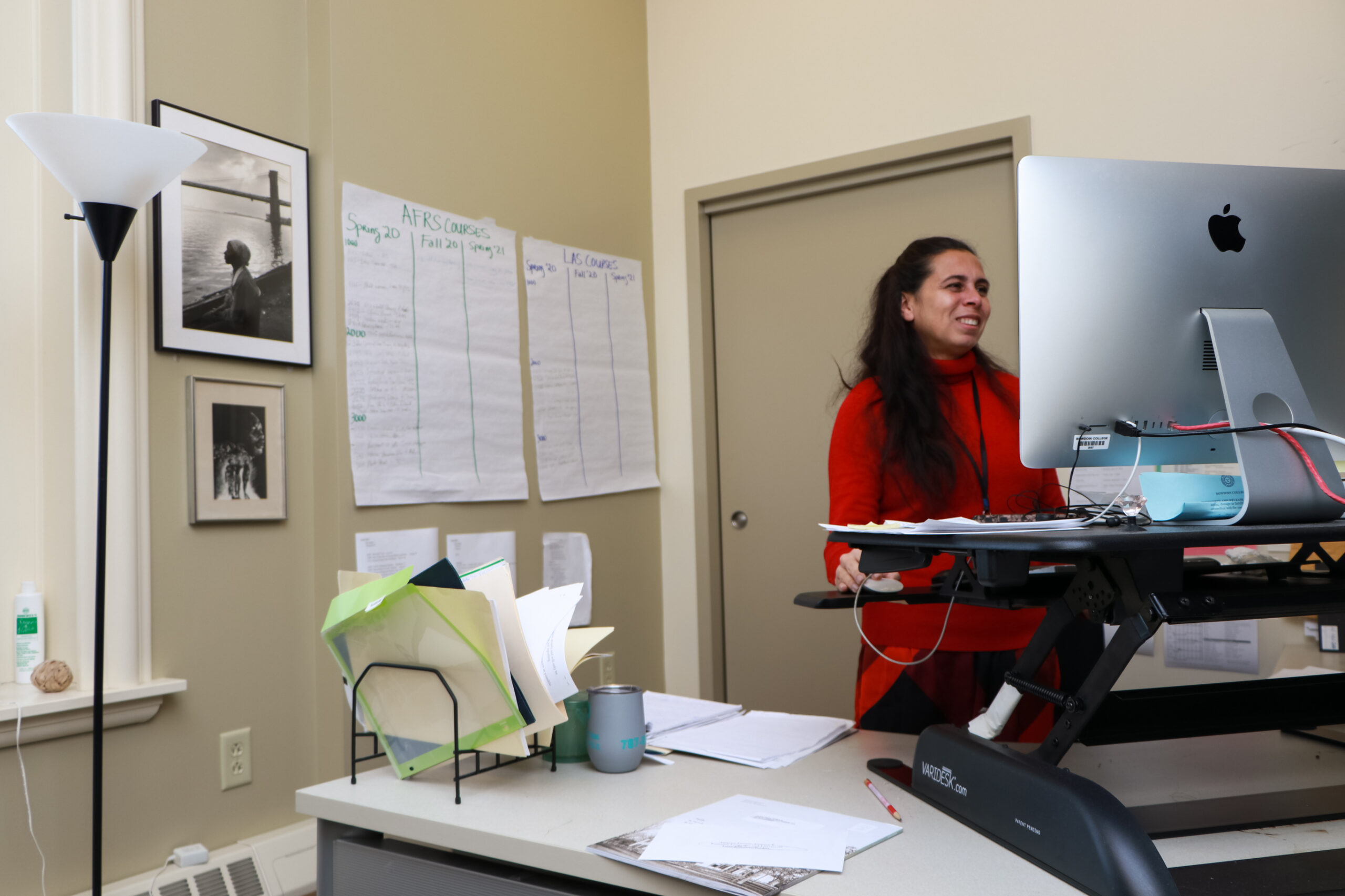Academic department coordinators work to support students and faculty in teaching and learning
January 24, 2020
“There’s my dream team right there,” History Department Academic Coordinator Rebecca Banks said, smiling and pointing to a picture of two students hanging on the wall in her office. “The students are fabulous. I usually have one or two student workers a semester, and I love them.”
Bowdoin’s academic department coordinators take on a wide range of responsibilities, from working directly with students and faculty and managing course materials, to planning events for majors, bringing speakers to campus and helping hire new faculty members. The specific tasks, however, vary by department.
“Each academic coordinator is very different,” Banks said. “It depends on the needs of his or her department and the size. [Different departments] allow us to do different things.”
In the history department, for example, many tasks are delegated to professors in what Banks calls “tzarships”—as in Russian tzar. Each “tzar” is a professor is responsible for a set of tasks.
 Ann Basu
Ann BasuAcademic department coordinator for Government and Legal Studies Lynne Atkinson ’81 graduated from Bowdoin as an English major, in her own words, “centuries ago.” The native Mainer took a job as a buyer for L.L. Bean after graduation, then worked at Bath Iron Works, managing contracts for large equipment before returning to Bowdoin.
“It’s been a long time, but honestly I still feel like every day something new is going to happen,” she said. “You just never know in this kind of position what’s coming through the door.”
For Atkinson, working as a coordinator after having been a student has provided her with a different perspective of how the College functions.
“As a student, I had no concept at all of how things happen, how things get done behind the scenes,” Atkinson said. “It’s been so eye opening to come back here as an employee, particularly in academic affairs, and see all these workings that are happening. We’re kind of this invisible little force behind the scenes.”
Elizabeth Palmer, the Africana Studies and Latin American Studies department coordinator, moved to Maine with her husband, an alum, and began working at the College in 2001. Expecting a similar job to her previous position as an administrative assistant at Brown University, Palmer was surprised to learn that her Bowdoin position involved more managerial and customer service duties.
“This is a job [where you] deal with a lot of different types of environments and different people,” Palmer said. “We do most of the legwork of communicating with all the other different departments and helping the faculty members.”
In addition to their job expectations, many department coordinators take on supplemental responsibilities. Lori Brackett, the coordinator for the sociology and anthropology departments, noted the meaningful personal relationships she has built with students.
“On a personal nature, when students are having a difficult time, whether they’re homesick or having relationship issues or their health is compromised and they just need some adult support and comfort, I think there are many of us that feel that we fill that role and that’s really an important one,” Brackett said.
For many coordinators, building relationships with students is a highlight of the job. The unique role of coordinator provides an alternative outlet for students to seek support.
“We’re like the hub to the College, and I would like students to know that,” Palmer said. “I would like students to know who we are and that we’re here for them as well. They [can] count on us and faculty members count on us.”
Supporting students directly and becoming involved in their experiences, though not a specific job responsibility, is an incredibly valuable part of many coordinators’ jobs.
“I think a lot of us have really have that nurturing aspect and we really feel like we’re part of the student experience and we want to be helpful and supportive in those ways,” Brackett said.
“For the students [who] don’t necessarily feel comfortable going to faculty member, they’re really freaked out and overwhelmed, just letting them know that the door is open if they need to [have] an off-the-record conversation and ask for support [is important],” Brackett said. “We can give them resources and encouragement, all around, and that’s certainly not something in our job description.”

Comments
Before submitting a comment, please review our comment policy. Some key points from the policy: